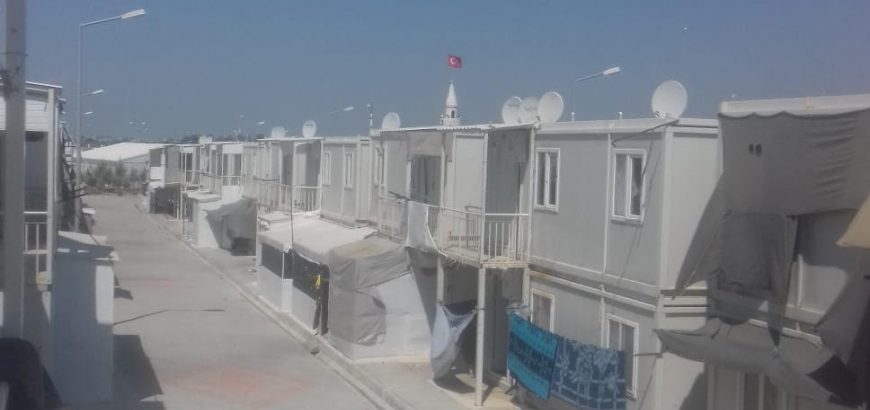For months, Turkish authorities have been gradually evacuating the Syrian refugee camps in Turkey, pushing the occupants out to live in Turkish cities. Authorities provided refugees with means to start a new life. This step was met cautiously by some refugees.
A few weeks ago, the Turkish authorities evacuated the Ceylanpinar camp in the southern province of Urfa, which was home to more than 9,000 refugees, with only 500 people who are unable to work remaining.
They are also evacuating two other camps – Nazib and Suruç – which accommodated approximately 30,000 refugees. Evacuation of these three camps is underway and the residents are offered the option of voluntary departure, with incentives. Those who decide to remain will be moved to another camp, before the final dismantling of these camps.
Mehmet Sezer, a security official at Hatay 1 Camp, said that the camp management’s policy is to, “encourage people who are able to work and produce to go out and start a new life.” He added that, “several meetings were held between the management and the residents and most of them wanted to leave. However, some feared the costs of transport, and the authorities paid a compensation of 1,300 Turkish lira to each family member to help them start a new life.”
The Turkish official said in an interview with Alsouria Net that, “the people who leave the camp have the freedom to move to any Turkish state except Istanbul and Antalya, and will be provided with facilities to secure temporary identity papers for those who do not have them.” Refugees also received promises that they could keep the “financial assistance they receive from the Red Crescent amounting to 120 lira for each family member,” he added.
Sezer noted that some families without a breadwinner or suffering from illness would remain in one of the three camps that will be left throughout the country.
A Syrian media activist says this step does not works against the refugees, as residents in these camps cannot continue to rely on state aid.”
Antakia resident Hussein Bakur added that the stay in camps will only result in, “sluggishness, unemployment and dependence on others and this is unacceptable after eight years.”
Bakur said that leaving the camps could help people improve their situation and start a new life, like the thousands of Syrians who have inhabited Turkish cities, entered universities and set up their businesses, and can contribute to building the country that hosts them.
The Turkish authorities justified the dismantling of the camps, stressing the importance of integrating Syrians into Turkish society.
But those who left the camp some time ago complained about the high prices of rents and the lack of job opportunities in the city of Antakya.
One of them, Hussein al-Said, commented that, “For more than a month, I have been looking for a house to rent; but the prices here are very high.”
But at the same time, Said feels that leaving the camp and integrating with Turkish society is inevitable, and is in the interest of his children, he says, especially since they will attend school this year and learn their language.
This article was translated and edited by The Syrian Observer. The Syrian Observer has not verified the content of this story. Responsibility for the information and views set out in this article lies entirely with the author.


